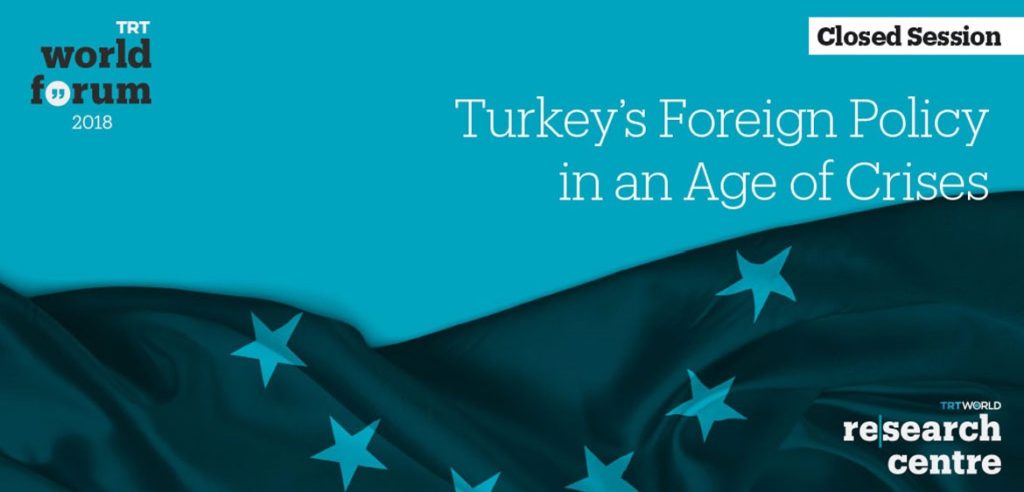On October 4th, 2018, TRT World Research Centre held a roundtable meeting with the title of ‘Turkey’s Foreign Policy in an Age of Crises’. This was part of a series of roundtable meetings forming part of the two-day TRT World Forum 2018, which included 8 public sessions and 11 closed sessions. This roundtable meeting was held in English and under the Chatham House Rule. This rule stipulates that ‘when a meeting, or part thereof, is held under the Chatham House Rule, participants are free to use the information received, but neither the identity nor the affiliation of the speaker(s), nor that of any other participant, may be revealed.’ This session aimed to discuss Turkey’s foreign policy in the light of the most recent developments in the Middle East. In the course of the first two decades of the 21st century, Turkey has arguably faced a more challenging foreign policy environment than at any other time in its modern history. In turn, each of the successive crises has uniquely shaped various aspects of Turkey’s developing foreign policy. While Turkey has taken proactive roles in regional and global affairs, a seemingly never-ending tide of change has continually swept over the global landscape. From unpredictable leadership in the United States, to various humanitarian crises, financial uncertainties in Europe and an ever more complex and turbulent Middle East, there emerges an acute sense of global uncertainty. Any productive analysis of Turkish foreign policy today must take these multifaceted and complex issues into account. In this session, Turkey’s foreign policy will be analysed in light of its diplomatic policies and practices as well as the discursive constructions related to Turkey’s geopolitical and cultural positioning in the world. How can we better understand changes in Turkey’s global positioning vis-à-vis its geopolitical and cultural positioning beyond the trope of the East-West divide? This question is at the heart of this session and will be explored in detail in the sections that follow.
